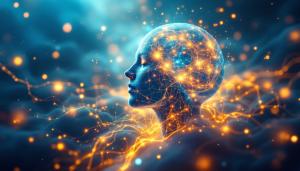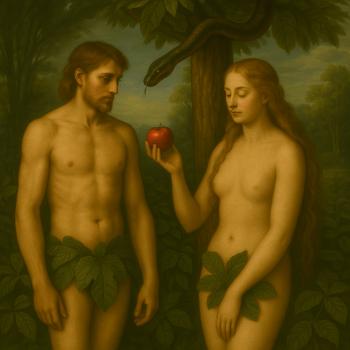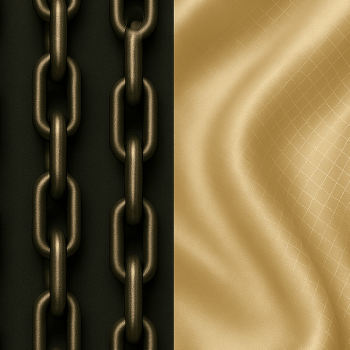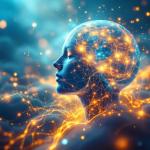In my writing, I suggest that the brain might be more of a receiver than a transmitter. This may explain phenomena like extra-sensory perception, near-death experiences, out-of-body experiences, and past life recollections more simply than alternative explanations.
I wrote about our recent trip with several atheists and scientists, including Richard Dawkins, here. In the column, I marveled at their awe, gratitude, reverence, and sense of responsibility.
When I learned that Richard Dawkins would be on the trip, I warned my wife, Jill, that he could seem prickly. To prepare for the trip, I read some of his books and listened to many of his podcasts.
Soon, I realized that he only seems prickly because (often) angry Christians attack him. I write in the space between atheism and theism, and (sometimes) angry Christians attack me, too.

In contrast, angry atheists do NOT attack me. Atheists are generally curious, and they are willing to challenge their own assumptions. Dawkins admits that he is more an agnostic than an atheist. (No one can know that God does NOT exist, just like no one can know that God does exist. Ultimately, we are all agnostics.)
Dawkins might be the most curious person I have ever met. Numerous esteemed scientists joined the trip, and Dawkins wanted to learn from each of them. “Which expert should I contact?… Which paper should I read?… If you know more than I know, please help me to understand.” His curiosity is almost boundless, which is remarkable, given his age, his intellect and his stature.
I think that Dawkins is a decent person, too. Although he might well believe that religions (especially dogmatic religions like Christianity and Islam) do more harm than good, he is NOT unkind. Once, an interviewer asked him whether he would burn a Quran in front of a Muslim. “Of course not,” he replied. “I’m an atheist, but I’m NOT an a**hole.”
Are We Living in the Matrix?
One evening, Jill and I had dinner with Dawkins and his wife, and we had some questions.
In a podcast, he described how he explained a mobile phone to his 102-year-old mother: (I’m paraphrasing) “The phone is a transmitter and a receiver, processing information from outside itself, much like a computer and the cloud or (possibly) like a brain and its environment.” What?!?! This is interesting, since Dawkins is a materialist.
I asked Dawkins whether the historical record could be encoded in our environment, much like the genetic record can be encoded in our genes. When we enter a cathedral or a concentration camp, does the environment somehow hold the beautiful or terrible record of things that have take place there?
Dawkins became animated, explaining that our brains are so small and the information that we process is so vast that it’s intriguing to think that we might be able to access external information, much like in the movie, “The Matrix.” (I know that Dawkins is also open to the “multiverse” or many universes theory, an exciting explanation for accommodating alternative outcomes.)
This is mind-bending stuff, and these are popular notions in spiritual circles, where people talk about “Mind beyond brain,” the akashic record, the collective unconscious, or the sacred archive. Obviously, Dawkins is NOT imagining anything supernatural. He is simply imagining something natural that we might ultimately be able to explain with biology, chemistry and physics.
In fact, during the cruise, the tour sponsor, “New Scientist” magazine, distributed copies of its recent issue. The cover article asks, Does Space-Time Remember? Here, Dr. Florian Neukart writes, “I have come to believe that space-time isn’t some kind of empty nothingness most of us think it is. Instead, at a fundamental level, it is made of stored information.”
Does Space-Time Remember?
Neukart, a professor of quantum computing, explains that space-time is seen as a stretchy sheet that is deformed by anything with mass, according to Einstein’s general relativity. Alternatively, Neukart believes that space-time might be composed of many discrete cells that contain information. He believes that information might warp space-time, much like mass does.
Neukart tested his theory in a quantum computer, validating the idea that memory-like behavior is physically modellable, implantable and retrievable. In his provocative conclusion, he asks, “Could dark matter be information stored across space-time in a way that generates gravitational pull? I think so. My suspicion is that the whole cosmic history is, in some sense, baked into space.”
In The Way, I discuss the concept of “Mind beyond brain,” the idea that the brain might be a receiver in a field of information. I suggest this possibly explains para-psychological phenomena, like extra-sensory perception, near-death experiences, out-of-body experiences, and past life recollections. Perhaps these phenomena are impersonal (not personal) and natural (not supernatural.)
Some observers, like Keith Giles, my fellow Patheos contributor, think we might live in a holographic universe. If so, the whole is reflected in the parts, and the parts are reflected in the whole.
A Great Thought
Sir James Jeans, an astrophysicist, once wrote, “The universe begins to look more like a great thought than like a great machine.” What do these new findings suggest about Ultimate Reality? Could we be thoughts, not things? Could God or Ultimate Reality be a Thinker, not a Maker? If all information is stored in space-time, can we glimpse (or share) the Mind of God?
Could there be natural explanations for para-psychological phenomena? If our information is recorded in space-time, could we have eternal life of a sort, albeit impersonally and naturally? If so, what would we gain from a physical resurrection? What is the role of a theistic God in an eternal universe that evolves through natural selection and preserves information in space-time?
In my writing, I suggest that the brain might be more of a receiver than a transmitter. Today, some people talk about the “God of the gaps,” the default supernatural explanations for things that currently do not have natural explanations. As biology, chemistry and physics explain more of our world, there are fewer and fewer phenomena that we can attribute to this God of the gaps.
As I said last week, increasingly, science is exploring the questions that theology is ignoring. The scientists are the ones talking about awe, consciousness, interconnection, and Mind beyond brain.
Next week, I will continue to discuss my dinner with Richard Dawkins, including his thoughts on transcendent experiences.
Stay tuned…












